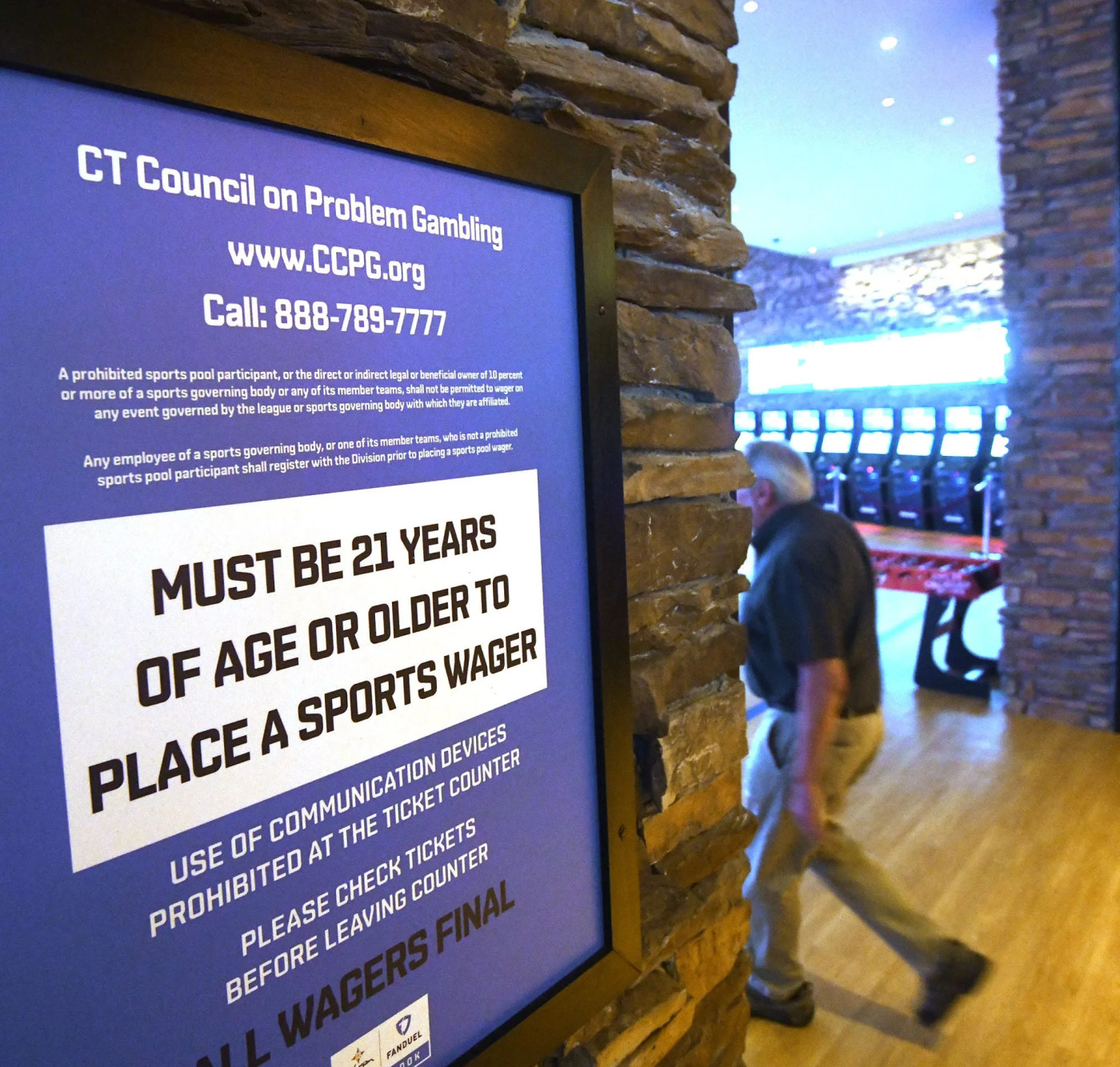
As sports betting skyrockets, more Americans search for addiction help, study finds
Seven years ago, only Nevada allowed wagering on sporting events.
After the U.S. Supreme Court in 2018 struck down a ban on sports gambling, sports betting has spread to all but a dozen states. But a new study links the proliferation of this type of betting to a rise in the number of people who might be addicted to gambling.
A study published Monday in the peer-reviewed JAMA Internal Medicine reported a 23% jump in people searching for the phrase: "Am I addicted to gambling?" Meanwhile, sports wagering skyrocketed from $4.9 billion in 2017 to $121.1 billion in 2023. And most of those bets were on mobile apps or other online sites. The study said 94% of sports bets in 2023 were online.
After states legalized sports betting, the study said searches for gambling addiction increased at a pace higher than what researchers expected, and the pace is accelerating. Searches for gambling help increased 22% in 2022, 25% in 2023 and 31% through the first 6 months of 2024, according to John Ayers, lead author and vice chief of innovation at University of California, San Diego school of medicine.
Ayers and his co-authors make the case that states often are unprepared to handle the increase in sports betting. While gambling has been a boon to state tax coffers, most states dedicate scarce resources to address the potential public health problems linked to gambling disorder, the formal name for gambling addiction, the study said.
Need a break? Play the USA TODAY Daily Crossword Puzzle.
"What the heck are we doing here?" said Ayers. "We have this huge health implication and nobody's talking about it."
Researchers and clinicians who did not participate in this study said its main finding - that more people are seeking help for gambling addiction - matches their experience.
"These findings are not surprising to me," said James Whelan, executive director of the Tennessee Institute for Gambling Education and Research. The study "shows a correlation and that correlation is real."
Whelan's group operates three Tennessee clinics staffed with a network of mental health specialists for people seeking help. Before online sports bookmakers launched in November 2020, Tennesseeans rarely sought counseling for sports betting. In the past two years, 55% to 60% of clients have been men who cited sports wagering as their primary type of gambling, Whelan said.
Are states prepared for problem gambling?
While states typically highly regulate retail and online sports betting, lawmakers often pay less attention to potential public health harms, the study said.
Researchers said state legislatures should work with public health agencies to require mandatory assessments to measure public health impacts when states permit or expand sportsbooks.
In 2023, states that legalized sports betting budgeted an average of $3.1 million for gambling addiction services. The average was buoyed by Massachusetts, which allocated $22.6 million for such assistance. The study said 20 states set aside less than $400 000 for gambling addiction even though they took in substantial tax revenues. New Hampshire allocated about $100,000 to gambling prevention or treatment in 2023 while collecting $36.4 million in tax revenue from sports betting, the paper said.
"These states are seeing dollar signs. They just take that money and put it in the general budget," Ayers said. "They're not actually addressing the principle problem here."
Ayers said the search traffic shows people are looking for help.
The study cited higher-than-expected gambling help searches in Illinois, Massachusetts, Michigan, New Jersey, New York, Ohio, Pennsylvania and Virginia after the Supreme Court allowed sports betting. The search traffic in those states reached peak search volume in 2024, "suggesting that searches are continuing to rise following the opening of sportsbooks," the study said.
Does the medical community overlook gambling?
The study cited a potential "general blind spot" on gambling research with just 59 studies on gambling addiction in a federal research database since the sports betting ban was overturned in 2018.
Last October, the Lancet Public Health international commission of 22 health and policy experts warned of gambling’s risks in the era of easy online access.
Health care professionals also lack sufficient training on gambling addiction, the study said, adding that sportsbooks typically aren't regulated by state and local health departments and don't routinely report public health harms.
Whelan acknowledged the medical community's understanding of gambling addiction has evolved slowly. States typically fund support lines for people struggling with gambling, but resources for gambling addiction treatment don't compare to other substance-use disorders such as alcohol and opiod addiction.
Still, states are sponsoring more radio and television advertisement for gambling help lines, which might contribute to the rising search volume that the study discovered, Whelan said.

He also cited the sporting community's overall embrace of betting. Sports talk radio often chats about betting during segments. And sports venues for professional football, basketball, baseball and hockey routinely display ads for popular betting sites.
"You walk into any arena or stadium in the country, and there's advertising for a sports book that is promoted by the team," Whelan said. "If I'm a sports fan, gambling is now readily part of it."
If you or someone you know is struggling with gambling, call or text 1-800-GAMBLER, operated by the National Council on Problem Gambling.

